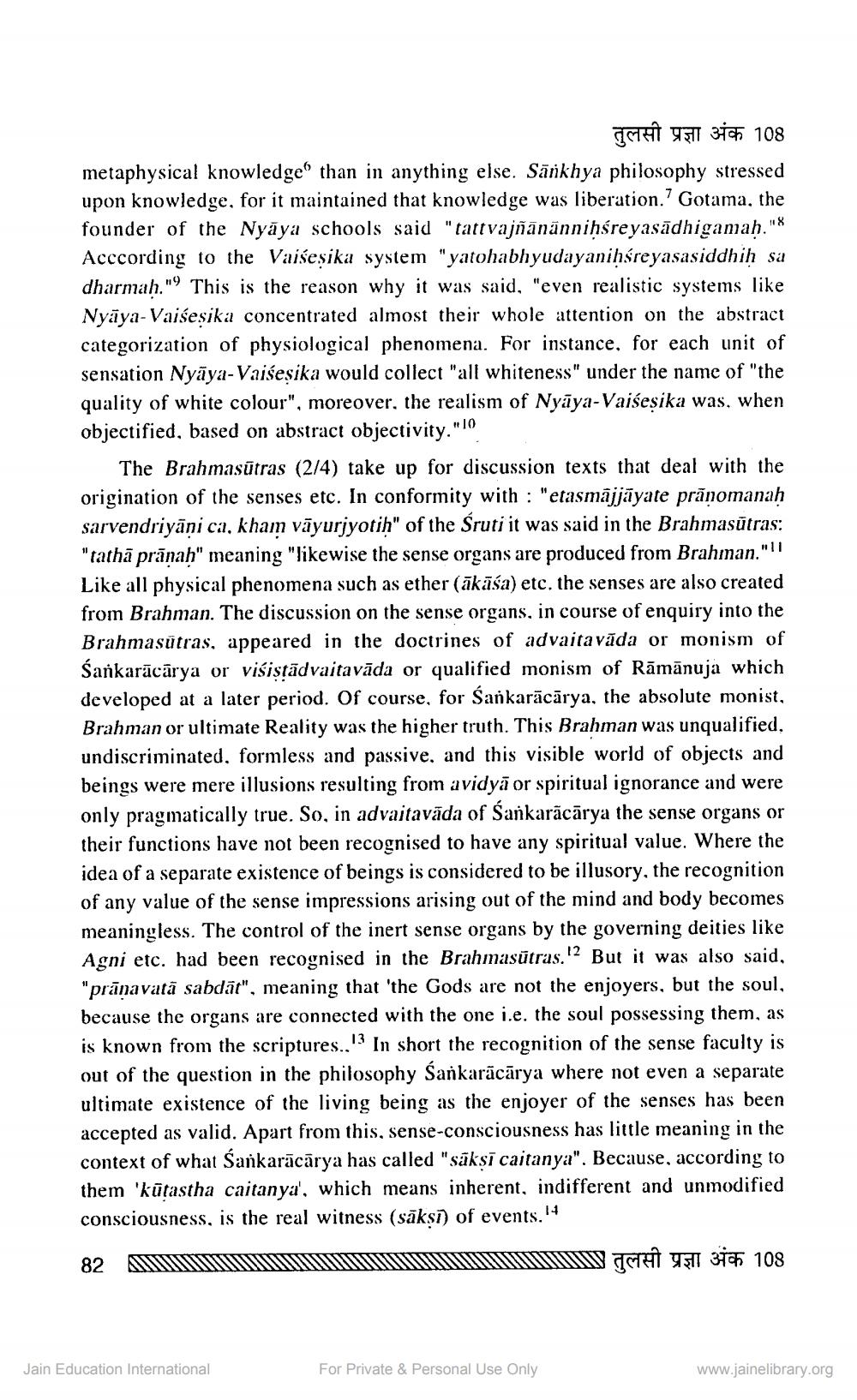________________
THÍ SI 34108 metaphysical knowledge than in anything else. Sārkhya philosophy stressed upon knowledge, for it maintained that knowledge was liberation.' Gotama, the founder of the Nyāya schools said "tattvajñānānnihśreyasādhigamah." Acccording to the Vaiseșika system "yatohabhyudayanihśreyasasiddhih sa dharmah."9 This is the reason why it was said, "even realistic systems like Nyāya-Vaiseșika concentrated almost their whole attention on the abstract categorization of physiological phenomena. For instance, for each unit of sensation Nyāya-Vaisesika would collect "all whiteness" under the name of "the quality of white colour", moreover, the realism of Nyāya-Vaiseșika was, when objectified, based on abstract objectivity."10
The Brahmasūtras (2/4) take up for discussion texts that deal with the origination of the senses etc. In conformity with : "etasmājjāyate prānomanah sarvendriyāṇi ca, kham vāyurjyotih" of the Sruti it was said in the Brahmasūtras: "tathā prānah" meaning "likewise the sense organs are produced from Brahman."!! Like all physical phenomena such as ether (ākāśa) etc. the senses are also created from Brahman. The discussion on the sense organs, in course of enquiry into the Brahmasutras, appeared in the doctrines of advaita vāda or monism of Śankarācārya or visistädvaitavāda or qualified monism of Rāmānuja which developed at a later period. Of course, for Sankarācārya, the absolute monist, Brahman or ultimate Reality was the higher truth. This Brahman was unqualified, undiscriminated, formless and passive, and this visible world of objects and beings were mere illusions resulting from avidyā or spiritual ignorance and were only pragmatically true. So, in advaitavāda of Sankarācārya the sense organs or their functions have not been recognised to have any spiritual value. Where the idea of a separate existence of beings is considered to be illusory, the recognition of any value of the sense impressions arising out of the mind and body becomes meaningless. The control of the inert sense organs by the governing deities like Agni etc. had been recognised in the Brahmasūtras.'? But it was also said, "prānavatā sabdāt", meaning that 'the Gods are not the enjoyers, but the soul, because the organs are connected with the one i.e. the soul possessing them, as is known from the scriptures. 13 In short the recognition of the sense faculty is out of the question in the philosophy Sankarācārya where not even a separate ultimate existence of the living being as the enjoyer of the senses has been accepted as valid. Apart from this, sense-consciousness has little meaning in the context of what Sankarācārya has called "säksi caitanya". Because, according to them 'kūtastha caitanya', which means inherent, indifferent and unmodified consciousness, is the real witness (sākşi) of events. 14 82 |||||||
W TRAYE 31 108
2
WI
Jain Education International
For Private & Personal Use Only
www.jainelibrary.org




